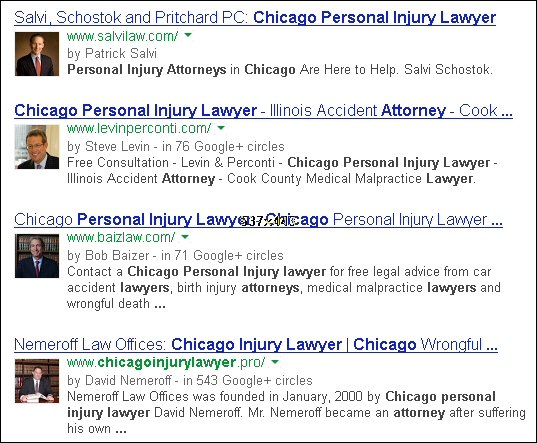Using Blog Posts to Generate Leads and New Clients
For high-growth firms, blogging is the single most important business development tactic – it is more effective than SEO, social media or email marketing.
“Blogging is the best way to establish thought-leadership online and get lawyers off the treadmill of defensive and costly advertising," said Dan Jaffe, Attorney and CEO of LawLytics.
It is essential for lawyers to have a blog that is updated frequently with unique content.
A vibrant blog will increase a law firm’s visibility, bolster the firm’s reputation and brand, and communicate the firm’s expertise.
What makes a blog successful is a consistent flow of content, educational posts relevant to the target audience, and a conversion offer -- meaning an offer of something free, like a download, in exchange for getting the visitor’s email address.
I recommend doing the following:
- Create an editorial calendar for the blog, so that you plan out blog posts in relation to conferences, dates and events that are important to your audience.
- Avoid writing about the law firm. Instead, tell stories about successes you achieve for clients.
- Promote two-way communication, by letting visitors comment on your blog posts.
- Consider adding video, which improves search engine results.
There are many sources of inspiration, including client questions, news stories, public statements by firm leadership, trade magazines, conferences, webinars, Twitter hashtags and LinkedIn answers.
Hire a professional
A blog post can take two to four hours to write, and for lawyers it often makes sense to outsource the writing, and to retain a professional legal blogging service to provide drafts of blog posts. “If you, as an attorney, love the write and have the time, then there is no person better qualified to write for your law firm's blog,” said Jaffe. "But if you don't have time, not blogging is not an option because your competition will lap you if you simply do nothing. For that reason, we recommend engaging a ghostwriting service that understands the intersection of journalism, SEO for attorneys, marketing and legal ethics. At LawLytics, we are very selective about the writers we hire .This is because a law firm's blog is often times the very first impression potential clients get of our customers."
There are several ways to double the volume of leads generated by a blog:
1. In blog posts, include links to an eBook or free report that can be downloaded.
2. Display offers about downloads into the sidebar of the blog.
3. Add italicized offers at the bottom of a blog post.
4. Measure which topics convert the best, and make a point of blogging on those topics.
5. Repurpose past blog posts by editing them into best EBooks and special reports.
6. Optimize posts as you write them by including keywords and links to previous blog posts. The LawLytics attorney website marketing software makes it easy to publish, optimize and link blog posts to other relevant pieces of information.
And if your blog just isn’t pulling in as many leads as it used to, redesign the blog completely to boost your traffic. This is why LawLytics includes free website redesigns every two years as part of a law firm's membership.
![How to Write Better Headlines [Infographic]](http://blog.larrybodine.com/uploads/image/whatmakesagoodheadline.jpg)
![Words And Phrases That (Almost) Always Convert [Infographic]](http://cdn2.hubspot.net/hub/53/file-1385944835-png/Words-That-Convert-Uberflip-Infographic.png?t=1407712608040)


 The rollout of Google's Panda 4.0 update in May promoted "quality" websites and downgraded "low quality" sites. As a result, some law firm websites saw their organic traffic and search engine rankings drop by 30% to 40%.
The rollout of Google's Panda 4.0 update in May promoted "quality" websites and downgraded "low quality" sites. As a result, some law firm websites saw their organic traffic and search engine rankings drop by 30% to 40%. Have you noticed that when you search with the terms "divorce lawyer Los Angeles" or "Chicago personal injury lawyer" on Google, that several of the lawyers' pictures are displayed?
Have you noticed that when you search with the terms "divorce lawyer Los Angeles" or "Chicago personal injury lawyer" on Google, that several of the lawyers' pictures are displayed?.jpg)
 In a major free-speech ruling, the Ninth Circuit decreed that bloggers have the same First Amendment rights as the institutional, commercial press. The ruling demolishes the argument that in the eyes of the law, bloggers are not journalists.
In a major free-speech ruling, the Ninth Circuit decreed that bloggers have the same First Amendment rights as the institutional, commercial press. The ruling demolishes the argument that in the eyes of the law, bloggers are not journalists.


